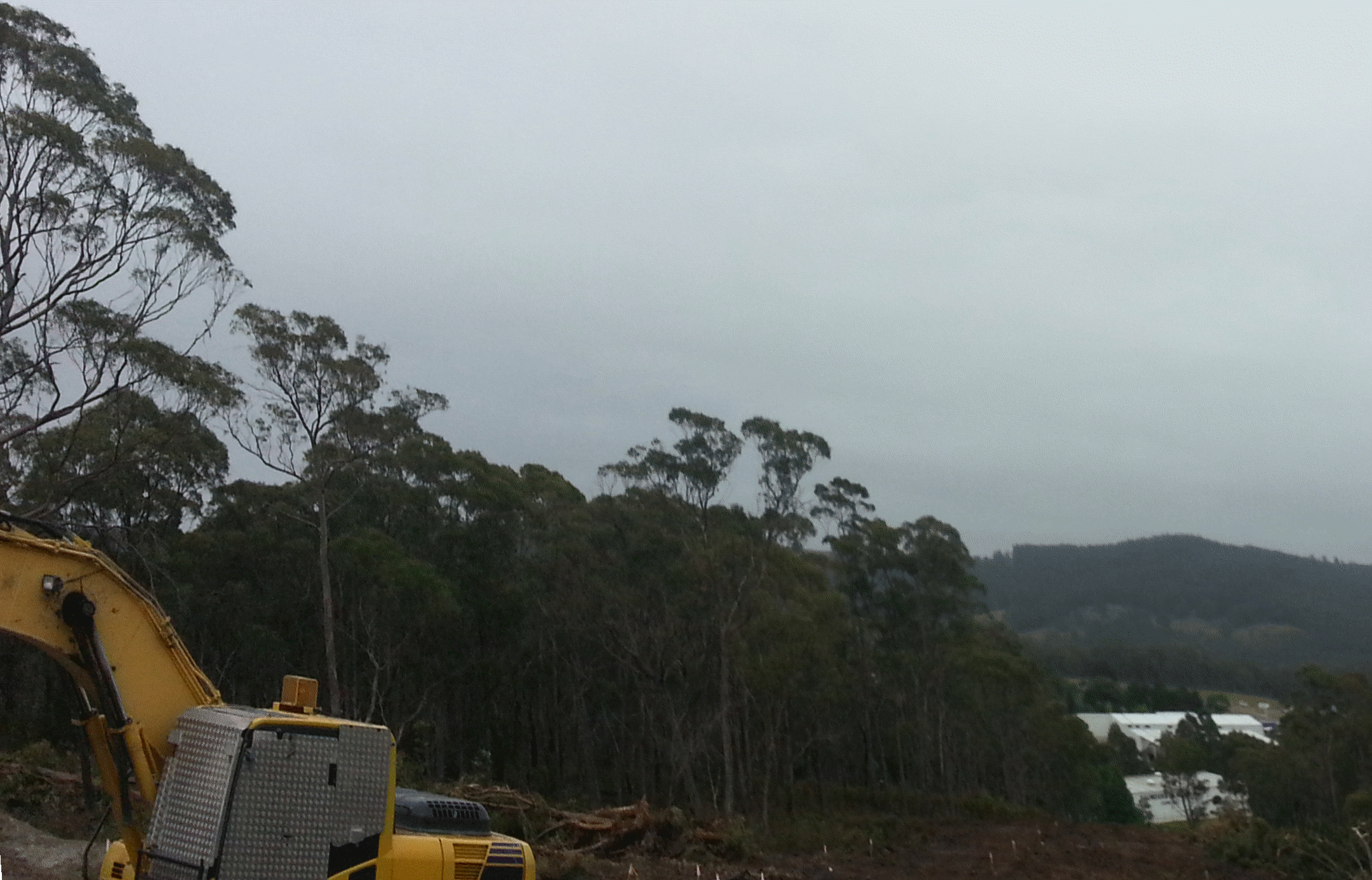A time to plant, and a time to uproot.
For the last three years we have lived in a house just south of Hobart. It’s a funny old place, a rental provided as part of my work for the church. It’s modern but quirky, obviously designed by a non-kitchen-aware man. It’s squishy for two adults and four large (and increasingly larger) children and frustrates our yearning for hospitality.
But it’s been a home to us over these last three years. We’ve filled it with our memories now… of birthday parties and recoveries from surgery, of budgerigars and baking, tears and laughs, arguments and hugs.
Chief of its blessings has been the view. We’ve had a bush-block out the back. Wallabies have come and eaten our lawn. Kookaburras have landed on our fence. Our budgie has been to visit the wrens out there (and returned), twice! That view has framed the seasons. It has been a place to escape, for walks and imaginings, and get-to-know-you conversations with new friends.
And now this has happened, you can see the before and after:
We knew it was coming. There had been talk for a while. The planning permission signs had gone up. But then it happened, and it happened quickly. As our children said, Mordor came to our windows, and we didn’t want to open the curtains.
It is, for us, the epitome of a current season of endings. Significant school years are finishing. A child is turning eighteen. Ministry tasks concluded or handed on. There is a time for everything, it says in Ecclesiasates, a time to be born and a time to die, a time to plant and a time to uproot. This current season clearly is not a planting time, and it feels, literally, uprooted.
The task in all seasons is a step of honesty, and a step of faith:
We must be honest about what is happening. This is where we are at, and this is the season we are in. We must grieve what we need to grieve. There is a certain amount of emptiness to embrace. Planting season involves planning and prepping and dreaming for what might be. Growing time involves pruning and caring and dealing with surprising things that have grown up at the same time. Harvest is busy busy busy with laughs and the promise of productivity-blessed rest. But this? This time of conclusion, how do we allow the fallow?
Which is where the faith step calls. For there are some temptations. It’s very easy to wallow. It’s very easy to scream and beat the air as things fall away (although that can sometimes be a very honest catharsis). A muddy despondency is close. But there is also:
1) Simplification. Trappings are gone. It’s just the bare earth of life now, for a while. Oh Lord, what will you plant in us? For me, these are the days of reading, and pondering, and praying. There’s some foundations down here somewhere, under the detritus of a decade’s-worth of things-that-have-happened.
2) Approbation. A celebration, almost, but not in great parties that fade away, but in the fruit that has lasted the turn of the seasons. This fruit is people, relationships, and love. Unconditional, Jesus stuff. Things may come and things may go, but down here, under the ground, there’s a treasure of great value – I know because I’ve seen it.
3) Contemplation. Not in some ethereal sense, but in the sense of looking ahead and contemplating “what’s next?” Because this isn’t the end. God-willing, there is much much more to come. And while this is not the season of striving, neither is it a season to batten the hatches and ignore the world. There are conversations to be had, surprises to be encountered, and possibilities to be cogitated upon. There’s a path down here on this bare earth, there’s somewhere to place and move my feet.
There is a season.
Turn.
Turn.
TURN!







